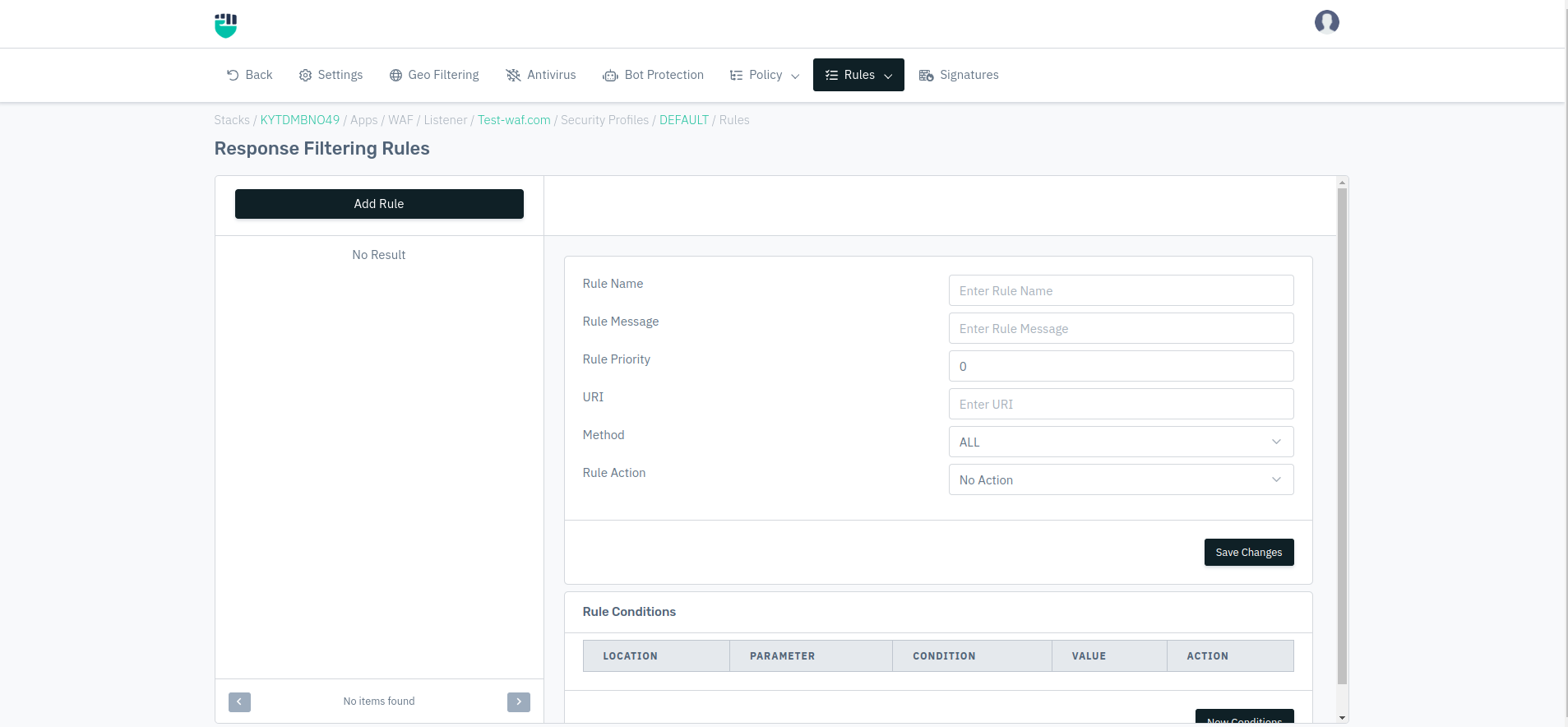Response Filtering Rule
Overview
Response Filtering is a feature of Haltdos WAF that allows application owners to filter responses from back-end application servers for HTTP requests on matching specified URL patterns.

How to Use:
- Follow the links: WAF > Listener > Profiles > Rules > Response Rule.
- Click on Add Rule and set relevant parameters described in the table below.
- Click on save changes.
Description
Rule Name
Users are allowed to specify a rule name to identify the rule which is to be created. The rule name takes alphanumeric input.
Accepted values: String
Default: Blank
Rule Message
Users are allowed to specify a rule message to understand the purpose of the rule. It can contain a detailed description to identify the rule.
Accepted values: Description for the rule in String format
Default: Blank
Rule Priority
It is a numeric field that specifies the priority of the rule in which the rule will be executed while evaluating the request. The lower value of priority means it will be executed first while executing the type of rule. The default value Is 0.
Accepted values: Integer
Default: 0
URI
Users are allowed to specify the URI. Specify the URI on which the firewall rule will be applied.
Accepted values: Regex
Default: Blank
Method
Users are allowed to specify the HTTP method on which the rule will be applied i.e. All, GET, POST, PUT, DELETE, HEAD, OPTIONS.
Accepted values: ALL / GET / POST / PUT / DELETE / PATCH / HEAD / OPTIONS
Default: ALL
Rule Action
Users are allowed to specify the action to be taken for the request matched i.e. No Action, Drop, Record, Bypass, Redirect, Temporary Blacklist, Send Challenge, Skip Learning.
Accepted values: NO_ACTION / TMP_BLACKLIST / TARPIT / SEND_RESPONSE_WITHOUT_CODDE / EMPTY_RESPONSE / EMBED_FINGERPRINT / REPLACE / REPLACE_ALL
Default: NO_ACTION
Add Condition
The user can specify some request/response-based conditions which can be used as mandatory conditions to be fulfilled to apply the rule.
To configure the parameter of the conditions please refer to the following link: Conditions